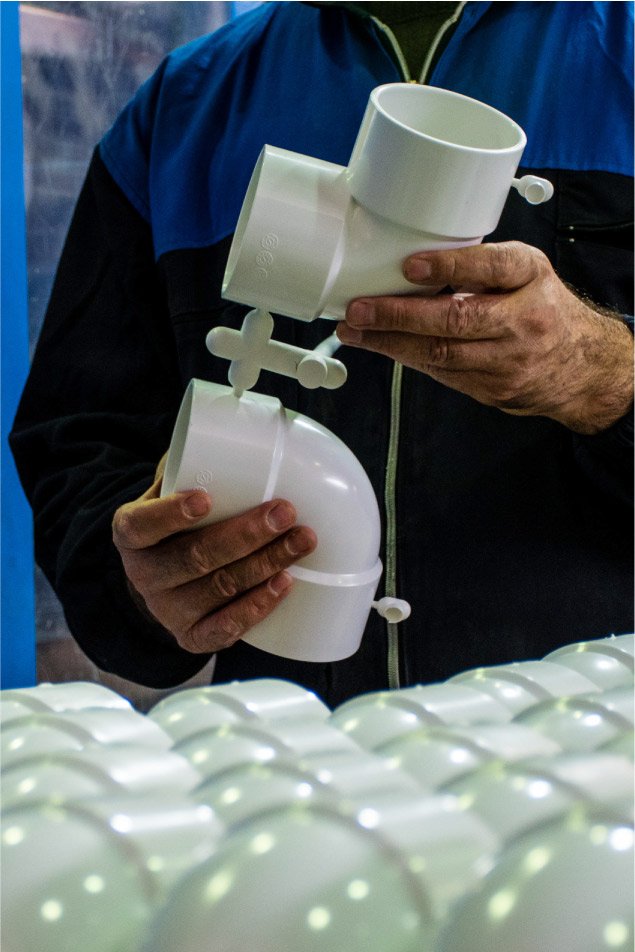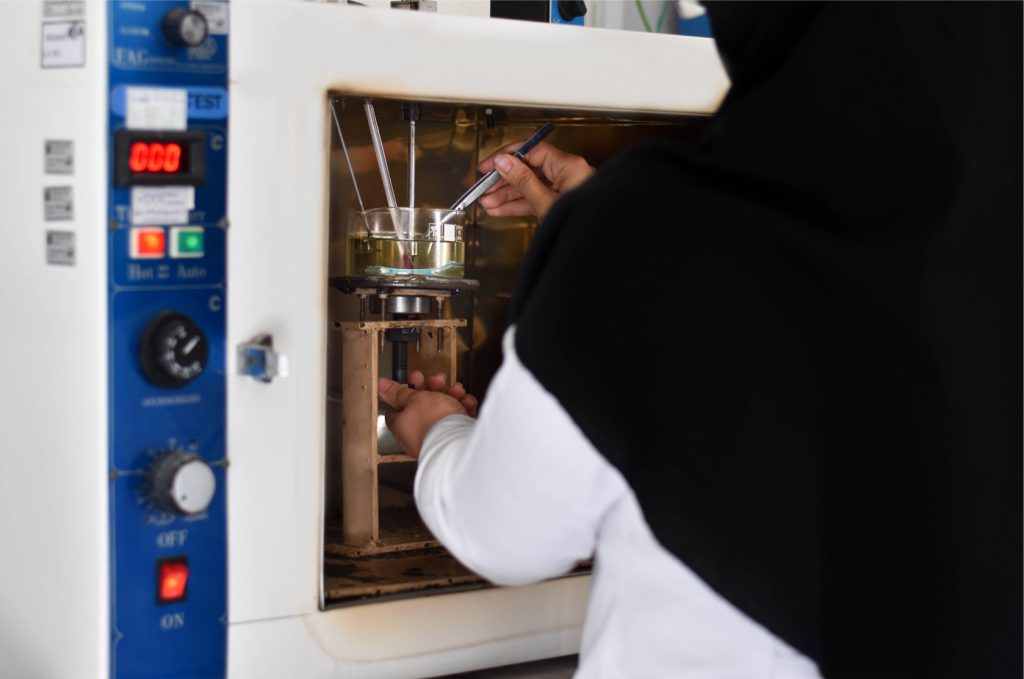
Quality Control Department of Oraman Gharb Company
Ensuring Quality and Precision at Every Stage of Production
The Quality Control Department at Oraman Gharb plays a vital role as one of the core pillars of the production process, ensuring the consistent quality of our products.
Relying on the expertise and experience of its personnel, and equipped with advanced technologies, this department closely monitors all stages of manufacturing.
Its oversight includes the inspection of raw materials, in-process quality control, and final product testing—all conducted in accordance with national and international standards.
Quality Control Processes
From Raw Materials to Final Product
Inspection and Evaluation of Raw Materials
The quality of the final products depends directly on the quality of the raw materials.
At the Ouraman Gharb Quality Control Unit, all incoming raw materials are carefully tested and inspected.
These tests include evaluating material purity, compatibility with the production process, and compliance with defined standards.
Strict Oversight of Production Processes
During production, the Quality Control Unit continuously monitors every stage of the process. From precise machine calibration to temperature control and production timing, every detail is closely supervised by our QC team.
This level of precision enables us to ensure that each product is manufactured in full compliance with the required technical specifications and applicable standards.
Final Quality Tests
After the production process is completed, the final products undergo a series of precise and specialized tests to ensure full compliance with national and international standards.
Quality Tests of Oraman Gharb Quality Control Unit
This test is conducted to evaluate the resistance of the pipes against dichloromethane, a corrosive chemical substance.
Adequate resistance to this chemical indicates the high quality of raw materials and the manufacturing process.
Dichloromethane Test (INSO 10609)
This test is conducted to determine the temperature at which the pipes begin to soften.
A high softening temperature indicates excellent thermal resistance and stability of the pipes under varying temperature conditions.
Vicat Softening Temperature Test (INSO 6982)
The density measurement of pipes is conducted to evaluate the strength and compactness of the materials used in their production.
This parameter assures us that the pipes possess adequate strength and durability.
Density Test (INSO 7090-1)
In this test, the pipes are exposed to high temperatures to evaluate their resistance to thermal changes.
This examination is crucial to ensure the durability of the pipes under harsh environmental conditions.
Heat Aging Test (ISIRI 12175)
06
This test evaluates the tensile strength of the pipes.
High resistance to tensile forces indicates the superior quality of raw materials and manufacturing processes.
Tensile Strength Test (INSO 17140-2)
05
This test is conducted to analyze the composition of raw materials and the ratio of resin to other components in the pipes.
An appropriate resin-to-material ratio directly affects the quality and durability of the pipes.
Mass Percentage of Resin Test (ISIRI 10237-5)
08
In this test, the pipes are subjected to mechanical impacts to evaluate their resistance against breakage and cracking. This examination is conducted to ensure the durability of the pipes under real operating conditions.
Impact Strength Test (ISIRI 11438)
07
This test is conducted to evaluate the pipes’ resistance against external forces applied in a circumferential (ring) manner.
This characteristic is crucial to ensure the pipes’ stability and durability under external pressure.
Short-Term Ring Stiffness Test (INSO 11436)
10
In this test, the dimensions of the pipes are precisely measured to ensure they conform to the specified technical requirements.
Dimensional Inspection (INSO 2414)
09
This test is conducted to evaluate the longitudinal dimensional changes of pipes under varying temperature conditions.
Controlling longitudinal expansion is crucial to ensure the proper performance of the pipes in different environments.
Longitudinal Expansion Test (INSO 17614)
Valid Certifications and Standards
Commitment to Quality and Regulatory Compliance
ISO/IEC 17025
A certification that demonstrates the capability of our laboratories to perform precise quality tests in accordance with international standards.
Iranian National Standard Licenses
Our products are manufactured in compliance with national standards 9119, 9118, 13361, 11125, and 11105, covering a wide range of applications including telecommunications pipes, electrical conduits, sewage pipes, well casings, and water supply systems.
ISO 9001:2015
This certificate guarantees that our management and production processes are continuously improved and conducted in accordance with the best quality management practices.

Quality Assurance by Ouraman Gharb Quality Control Unit
The Quality Control Unit at Ouraman Gharb, utilizing the best available technologies and expertise, ensures that all our manufactured products reach customers with the highest quality.
This commitment to quality has not only resulted in numerous awards and certifications but has also established Ouraman Gharb as one of the most reputable manufacturers in the industry.
